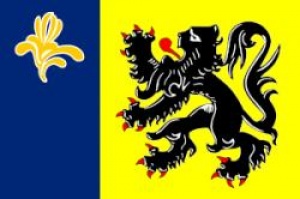Flemish Community to measure tourism’s economic impact using TSA

The Flemish Community of Belgium has become one of the first regions worldwide to determine the contribution of tourism to its economy using the United Nations approved Tourism Satellite Account (TSA). Results were announced during the official visit of the UNWTO Secretary General (March 12-13, 2012).
By implementing the TSA, the Flemish Community was able to measure exactly how much of the region’s economy is based on tourism. Results show tourism in the Flemish Community and Brussels capital contributed 12.6 billion euros, or 5.3 percent of total gross value added to the economy.
“The results of the TSA have confirmed tourism as one of the region’s most vibrant sectors and a vital contributor to economic growth,” said UNWTO Secretary General, Taleb Rifai, commending the initiative.
“Over the past few years, UNWTO has been working to address the specific challenges facing regional tourism, including how to analyze tourism flows and measure their economic impact at this level. Adapting the TSA at the regional level is a major step forward in this regard, and I congratulate the Flemish Community on becoming one of the first regions in the world to do so,” he added.
“Flanders is the first region from the European Union with TSA-figures. To determine the value of these figures and percentages it is important to compare them with similar figures from other countries. For the gross added value of tourism, Flanders is above average. Countries with a higher proportion of added value are typical tourist countries such as Spain and Portugal,” said the Flemish Minister of Tourism, Geert Bourgeois.
ADVERTISEMENT
On the occasion of his visit, Mr. Rifai addressed the Flemish Parliament and gave a guest lecture at the University of KU Leuven. Meeting with Minister Bourgeois, Mr. Rifai praised the Flemish initiative, “Tourism for All,” which aims to make tourism more accessible, especially for vulnerable groups including persons with disabilities or people living on or below the poverty line.
“Making tourism more accessible for all is at the heart of the Global Code of Ethics for Tourism and the mandate of UNWTO,” said Mr. Rifai, “The Code calls on public authorities worldwide to support the development of social tourism so that all can enjoy traveling. In this respect, the Flemish Community has proved a shining example.”

